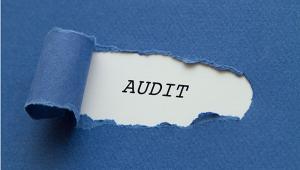
There’s a lot of noise about external audit.
We’ve seen numerous reports, including Kingman and the Competition and Markets Authority (CMA), proposing changes to the regulation of audit and the level of competition in the market.
This, alongside the collapse of Carillion and the discovery of fraud at Patisserie Valerie, has pointed to a lack of confidence in the way audit is delivered and the value of the audit itself.
The abolition of the Audit Commission, resulting in the 2014 Local Audit and Accountability Act, told the world that local government and health didn’t need the additional layer of an independent appointing body.
After all, direct appointment of external audit was good enough for the private sector. There is some irony in the recognition now that arrangements for private sector audit are not good enough after all.
However, the most recent and pressing concern has been the adequacy and impact of auditor reporting.
'The recent National Audit Office report on local authority governance concluded that central government lacks the evidence base to assess governance issues, focusing almost exclusively on financial risk.'
The recent National Audit Office report on local authority governance concluded that central government lacks the evidence base to assess governance issues, focusing almost exclusively on financial risk.
At a Public Accounts Committee hearing in March, the heavy reliance on local audit reports for assurance that governance arrangements are satisfactory was clear.
There are also weaknesses in the reporting of auditor findings. While Public Sector Audit Appointments unites auditor conclusions in an annual report, there is no similar overview of health audit reports or those of smaller authorities.
There is not even a single place you can go to to find public interest reports for the sector.
The government review of local audit arrangements will be critical for determining future regulation.
Separately, the NAO is currently consulting on the Code of Audit Practice, which sets out what local auditors are required to do to fulfil their statutory responsibilities.
The consultation raises issues about the effectiveness of auditor reporting and the scope of the value for money conclusion. While a new code could help auditors to improve the value of their reports, it can only go so far.
So, looking ahead, will there be improvements?
First, we must wait for further consultation on the Code of Audit Practice and the government’s post-implementation review.
We also have yet to see how the CMA and Kingman proposals move forward, so clarity is unlikely any time soon. We must also be aware of the spectre of Brexit and the distinct possibility of further political changes.
Will such changes move the issue up or down the political agenda, or squeeze it out of the debate altogether?
That should not stop us considering what is needed from local audit and considering how effectively it is being delivered at present.
Local audit is the long-stop for financial and governance failure and plays a vital role in providing assurance and accountability to the public, stakeholders and the government.
My own list of must-haves includes assurance of audit quality; effective public reporting; ensuring scrutiny and oversight of external audit arrangements at the local level, together with robust support and remedial action when concerns are raised; sharing best practice; and improving accountability via oversight.
No single player can take this forward.
Government, stakeholders, clients paying for and receiving audit, and the public all have a part to play. It is vital to share perspectives and contribute to the debate.
Perhaps, in time, the differing views will coalesce around a shared vision we can all support.



















